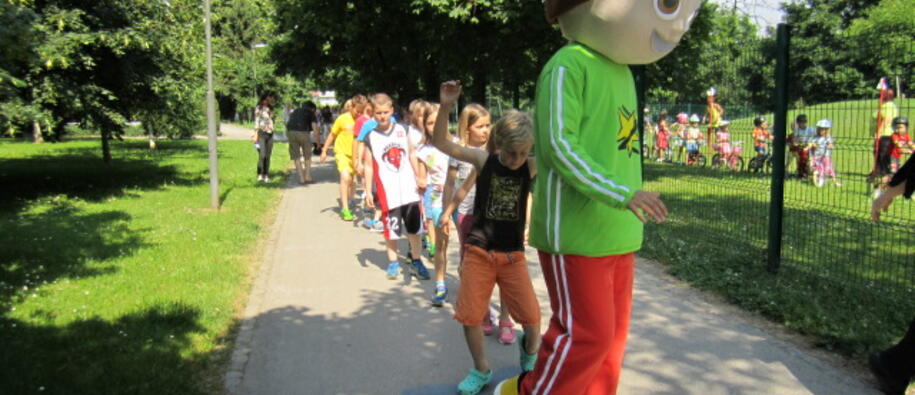Programme Summary
Why was the programme needed? The civil society in Slovenia is constantly growing: In 2013, there were approximately 24,500 civil society organisations (CSOs) in Slovenia and by 2016, this number had increased to 27,400. However, the civil society structure is suffering from a lack of financial and human resources, which is hampering the further development of the sector. There is also a lack of dialogue between the government and the civil society, which is restricting the opportunities of CSOs to influence policy-making. Funding for Slovenian CSOs comes mainly from public sources, representing about 40% of their income, followed by economic activities (about 35%), donations, and memberships. The EEA and Norway Grants contributed to further development of the sector in Slovenia by providing much needed support in the areas that are not supported by other donors. The total amount of funding available for the programme was €1,875,000. This amount was distributed to 33 projects involving 79 organisations, first and foremost addressing social justice and equality, human rights, children and youth, environment, and sustainable development. What did the programme achieve? The programme was a unique opportunity for many small, grass-root organisations to access international funds, expand their reach, and strengthen their capacities. Some examples of the achievements of the programme include:
- 15 laws, policies, or practices changed or improved as a consequence of CSO advocacy activities
- 33 CSO networks or coalitions created
- 35 occasions of decision-makers responding to citizens’ actions
- 33 NGOs reporting increased capacity for monitoring and watchdog activities
An important objective of the programme was to sensitise decision-makers and majority populations to the importance of tolerance and respect for diversity. To this end, one of the supported organisations, Legebitra, and its Norwegian partner Foreningen FRI identified systemic discrimination and established a system for monitoring legislative changes and human rights violations in Slovenia. Documents and information gathered through the project served as a basis for the new Civil Partnership Act that was adopted in April 2016. This law is a big step forward for LGBTI rights in Slovenia. The project also produced an analysis of legal gender recognition which will be used in future campaigns. Another important achievement of the programme includes the establishment of an anti-hate speech council in Slovenia. This council aims to contribute to less hate speech in public discourse by setting standards for public communication, working towards securing a systematic response system, and inviting the public to submit cases they find problematic. The programme also contributed significantly to developing the capacity of Slovenian CSOs. Medium and large project promoters needed to dedicate at least 20% of the funds for organisational development, which strengthened the supported organisations’ management procedures, structure, strategic planning, sustainability and advocacy role. The programme was particularly effective in improving the capacity of small grassroots organisations during the project implementation period, especially in terms of strengthening financial management, internal processes and communication strategies.How were bilateral relations strengthened? The programme contributed successfully to the bilateral objective of the EEA and Norway Grants. 13 out of the 33 projects were developed and implemented in partnership with organisations from the donor states (9 Norwegian and 4 Icelandic organisations). These partnerships allowed more than 40 people to participate in exchange visits between Slovenia and the donor states and achieved strong results by sharing experiences. One example is the Meta Dekleta project, a promotional campaign for women in politics, which based on experiences from Iceland, improved communication skills, strategies and tools for outreach. After the campaign ended, several of the so-called ‘Meta girls’ were invited by the Ministry of Labour, Family, Social Affairs and Equal Opportunity to join an expert committee on gender equality. Long-term effects of bilateral cooperation were also achieved, as some partnerships were extended beyond the duration of the projects. For example, a wide initiative was developed by Norwegian and Slovenian partners in cooperation with other organisations from the EU and China, addressing the common European challenge of reducing the amount of food waste. This initiative was developed into a project which then applied for funding from EU’s Horizon 2020. What will be the impact of the programme? Even though the projects ended in 2016, their results live on, and continue to make improvements in Slovenian society through established cross-sectoral partnerships, enhanced advocacy and watchdog capacities, and developed networks and coalitions. With the support from the programme, several organisations managed to open the doors to establishing a dialogue with local or national authorities. This empowered both CSOs and authorities through joining forces in coalitions, allowed these organisations to provide comprehensive analyses that formed the basis of better legislation, and opened for experimenting with new and innovative ways of working with and for society’s most vulnerable groups. The supported projects have helped Slovenian CSOs expand their capacity, establish organisational networks and coalitions, and strengthen their involvement in policy development. The funding also aided in diversifying the civil society landscape in Slovenia by supporting smaller, grass-root organisations that were otherwise underfunded. Increasing the visibility, role, and capacity of CSOs in the Slovenian society creates a platform for civil society to interact with, and influence, policy-makers. The results of the Meta Dekleta project exemplify this.

